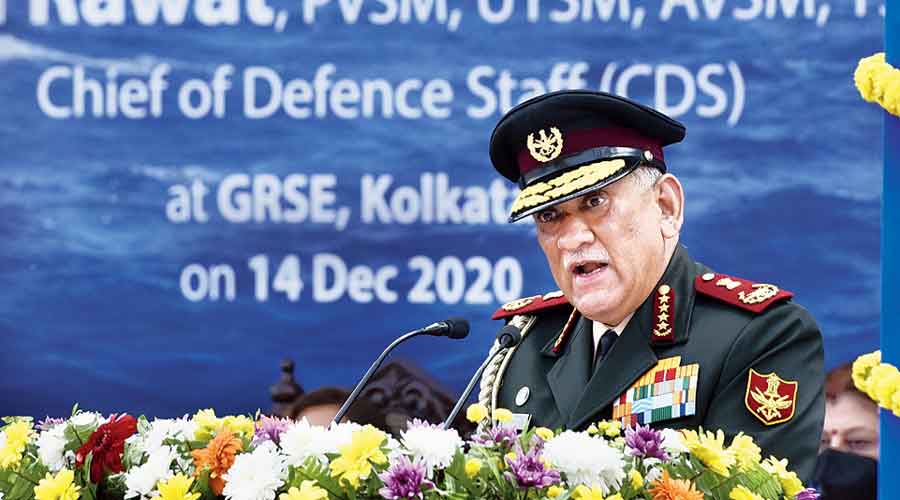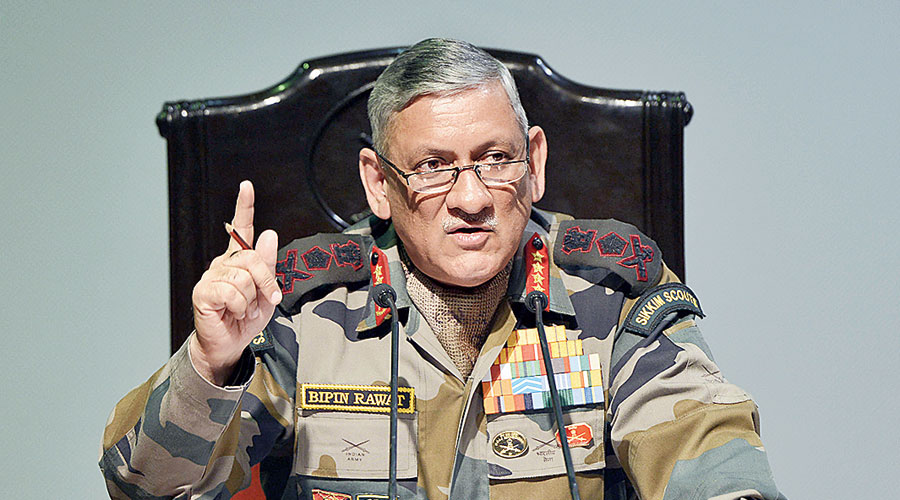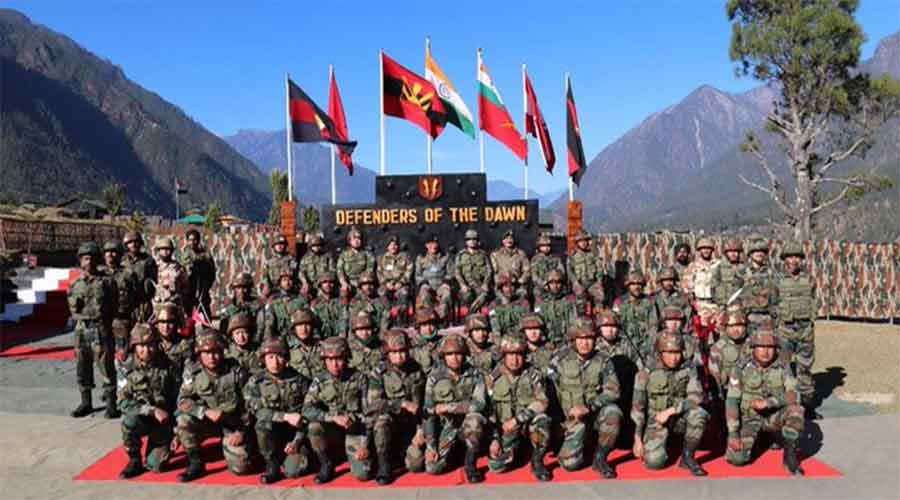Indian Air Force veterans on Saturday expressed deep anger and shock at chief of defence staff General Bipin Rawat describing the IAF as a “supporting arm” in the planned integrated theatre commands of the three armed forces.
Speaking at the same event later on Friday, Air Chief Marshal R.K.S. Bhadauria had disagreed with Rawat, a former army chief, saying “airpower has a huge role”.
Rawat, tasked by the Narendra Modi government to facilitate the integration process, had been asked at the programme, organised online by the think tank Global Counter Terrorism Council, about the IAF not being keen on the proposed theatre commands integrating the capabilities of the tri-services.
Rawat replied: “The IAF is required to provide support to the ground forces…. Do not forget that the air force continues to remain a supporting arm to the armed forces, just as the artillery supports or the engineer supports the combatant arms in the army.
“They will be a supporting arm. But they have a charter, they have an air defence charter (for) supporting the ground forces in times of operations. This is the basic charter which they have to understand.”
Bhadauria later said: “Airpower has a huge role to play. It is not a supporting role alone. In any of the integrated battle areas, it is not an issue of support alone.”
Asked about the IAF’s views on the theaterisation of the armed forces, he said: “Air power has a huge role to play in any of the integrated battle roles…. The IAF is fully committed to the theaterisation of the armed forces.”
Theaterisation means putting specific numbers of personnel from each of the three services — the army, navy and the air force — under a common commander for a unified military approach through a rationalisation of manpower and resources.
IAF veterans on Saturday erupted in anger against Rawat’s comments. They said his statements had created controversy and acrimony at the higher echelons of the military leadership at a time the air force was said to be harbouring reservations about unified commands because of its limited resources compared with the army’s.
A former air vice-marshal termed Rawat’s observations “shocking”.
“This is very sad that the IAF chief had to express his views strongly to counter Rawat’s statements. The air force will continue to have a very important role in any future conflict, as (at) the LAC, LoC and the deep maritime spaces of the Indo-Pacific,” he told The Telegraph.
The former air vice-marshal said: “Recently we saw the IAF demonstrate its commitment to jointmanship, be it Balakot or the counter build-up in Ladakh amid the Chinese aggression.”
Prime Minister Modi and the BJP had used the February 2019 airstrikes on Pakistan’s Balakot to the hilt in the lead-up to the Lok Sabha elections.
Air Vice-Marshal (retd) Manmohan Bahdur said: “The statement that the IAF is a supporting arm to the other two services is incorrect. The air force, just like the other two services, has its own attributes that have been well acknowledged in the last few decades.”
A former wing commander said: “Rawat’s statement has led to acrimony at the higher echelons of the military leadership. It has also brought out in the open the differences over the theaterisation of the military.”
The IAF is said to have apprehensions about the planned theaterisation as it does not want to split its assets, which are fewer than the army’s. The IAF is also believed to have contended that the nature of its operations is so fluid that all of India is one theatre for it. The force is also said to have issues over who would lead particular theatres.
A former IAF group captain said Rawat’s statements were shocking and disappointing. “They have once again exposed the hollowness of the jointness within India’s armed forces.”
The Modi government has formed an expert committee to carry out consultations with the three services to decide the way forward on the theaterisation of the military.
Rawat has been tasked with facilitating the restructuring of the military commands for optimal utilisation of resources through the establishment of unified theatre commands.
The plan is to have five theatre commands. Each will have units of the army, navy and the air force, and all of them will work as a single entity looking after specified geographical territories under an operational commander.
Now, the three armed forces have 19 commands, each assigned exclusively to one among the three forces.
Sources in the government said the theatre commands were being set up under the larger mandate of ensuring synergy among the tri-services chiefs to deal with security challenges.
The sources said there had been differences over the planned theaterisation amid fears that the senior positions would be taken over by the army, the largest among the three services.
The army brass, who are in favour of theaterisation, contend that multiple commands lead to confusion. They cite the example of China, which has a single Western Theatre Command for the entire Indian frontier.
On the other hand, India’s army alone has four commands on the China frontier — northern, western (which mainly looks after the Pakistan front), central and eastern. The IAF has three commands for the China frontier.













